New to Public Health-Cohort 3: Session 11 - Communication and Community Partnership Development
Overview
The New to Public Health Residency Program is an innovative development program designed to build confidence and competency for professionals who are new to public health.
The program is built upon the Foundational Public Health Services Model and develops enhanced knowledge and skills within the foundational areas and capabilities that are essential to public health practice.
The residency program includes an evidence-based practice project, peer networking, mentoring, facilitated reflection and journaling, simulation, and case studies to support the new resident as they transition to practice; while inspiring collaborative, interdisciplinary relationships to promote and protect health at a population level.
Statement of Need and Purpose
The residency program is designed to provide new public health professionals the foundational capabilities that are essential to public health practice. Overarching residency curriculum focuses on leadership, professional development, role-specific formation and competency. A residency program bridges the workforce by integrating the knowledge of experienced public health professionals and the fresh ideas of new staff to positively affect population health.
Integration of public health professionals from across jurisdictions allows the new public health professional to understand how diversity in the workforce strengthens essential services across city and county lines, and allows for enhanced networking and future collaboration.
Residency programs supplement state and local orientation programs and build upon department-specific policy, procedures, and tasks, to allow the resident to see a fuller picture of the field of public health.
This contemporary program utilizes a comprehensive practice model that supplements existing knowledge of staff and supports the synthesis of new ideas. The program promotes standardized tools for the participant to customize based on their individual practice.
Target Audience
This residency program is designed to meet the needs of nurses, social workers, sanitarians, health educators, and other public health professionals that are new to their roles.
Elements of Competence
This continuing education (CE) activity is designed to improve learner competence, and focuses on the American Board of Medical Specialties’ areas of interpersonal communication skills, professionalism and systems-based practice, the Institute of Medicine area of employing evidence-based practice, applying quality improvement, and utilizing information, and the Interprofessional and Nursing areas of values/ethics, roles/responsibilities and interprofessional communication.
Global Learning Objectives
By the end of the residency program, the new public health professional as a member of the interprofessional healthcare team will:
- Apply learned concepts from the Foundational Public Health Services’ model to their public health professional practice.
- Increase knowledge, skills, and confidence for competent public health practice.
- Access tools and resources applicable to public health practice.
- Apply health equity and social justice concepts to public health practice.
- Demonstrate enhanced cultural competency knowledge and skills in their individual practice.
- Research, plan, and present a quality improvement or evidence-based practice project within their local health department or community.
Session Learning Objectives
By the end of this session, the new public health professional as a member of the interprofessional healthcare team will:
- Identify how to maintain ongoing relations with local and statewide media including the ability to write a press release, conduct a press conference, and use electronic communication tools to interact with the media.
- Detail how to write and implement a routine communication plan that articulates the health department’s mission, value, role, and responsibilities in its community, and support department and community leadership in communicating these messages.
- Recognize how public health transmits and receives routine communications to and from the public in an appropriate, timely, and accurate manner, on a 24/7 basis.
- Explain how to develop and implement a proactive health education/health prevention strategy (distinct from other risk communications) that disseminates timely and accurate information to the public in culturally and linguistically appropriate (i.e., 508 compliant) formats for the various communities served, including through the use of electronic communication tools.
- Discuss how to create, convene, and sustain strategic, non-program specific relationships with key health-related organizations; community groups or organizations representing populations experiencing health disparities or inequities; private businesses and health care organizations; and relevant federal, tribal, state, and local government agencies and nonelected officials.
- Demonstrate ability to maintain trust with and engage community residents at the grassroots level.
- Explain how to strategically select and articulate governmental public health roles in programmatic and policy activities and coordinate with these partners.
Successful Completion
Residents will view lectures, panel discussions, participate in cased-based and small-group discussions, participation in simulation and skill-based training, and participate in simulation, skill-based training, and gaming activities over a 12 month period of time.
The residency program also includes an evidence-based practice project, peer networking, mentoring, facilitated reflection, journaling to support the new resident as they transition to practice while inspiring collaborative, interdisciplinary relationships to promote and protect health at a population level.
SESSION SECTIONS |
|---|
| Session 11: Pre-Test |
| Scavenger Hunt |
| Health Communication |
| Health Messaging Part I |
| Health Messaging Part II |
| Discussion |
| Media |
| Health Education |
| Community Engagement |
| Community Coalitions |
| Case Study - Coalitions |
| Public Health 3.0 |
| Reflection |
| Discussion Post Check In |
| Session 11: Post-Test |
| Session 11: Evaluation |
| References |
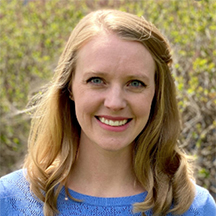 | Julianna ManskeNew to Public Health Residency Program FacilitatorJulianna Manske is the is facilitator and cofounder of the New to Public Health Residency Program and is employed with the University-Wisconsin Madison School of Nursing. Julianna spearheaded the workgroup in 2016 that developed and implemented the Southeastern Wisconsin Public Health Nurse Residency Program. This program, which ran from 2017-2020, served as a foundation to build the New to Public Health Residency Program, which supports public health professionals in their first year of employment at a local, regional, tribal, or state health department. Julianna serves as a co-chair on the Association of Public Health Nurses’ Education and Professional Development subcommittee. Julianna graduated from Concordia University in 2014 with a Master of Science in Nursing Education, and Carroll University in 2009 with a Bachelor of Science in Nursing. Julianna is passionate about workforce development and she is grateful to work with an incredible team developing the New to Public Health Residency Program and collaborating with public health leaders across the country. |
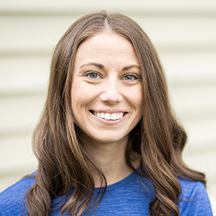 | Hannah HayesNew to Public Health Residency Program Facilitator and Project ManagerHannah Hayes is the New to Public Health project manager, facilitator, and co-developer of the New to Public Health Residency Program. In 2018 Hannah completed her Master of Public Health (MPH) at the University of Wisconsin-Madison. During this time, Hannah partnered with the Southeastern Wisconsin Public Health Nurse Residency Program, where she assisted in the co-development of a toolkit for the dissemination and implementation of the residency program, which served as the foundation for the New to Public Health Residency Program. Hannah is currently employed by the University of Wisconsin-Madison School of Nursing as the Project Manager of the New to Public Health Project. Hannah graduated with her Bachelor of Science in Nursing in 2016. Hannah has experience in family practice & forensics, postpartum, and public health nursing in addition to serving as a public health clinical instructor. Hannah is passionate about social justice, empowering new professionals, and advancing the public health profession. |
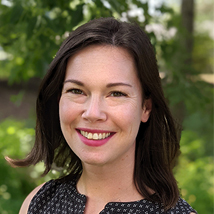 | Madeline KornbeckMadeline Kornbeck MPH, CHES is a Coalition and Grant Coordinator for a Drug Free Communities (DFC) funded coalition through the Greendale Health Department. Community Alliance focuses on youth substance misuse, connecting individuals and families to local prevention and recovery resources and reducing addiction-related stigma. Previously, Madeline was the department’s Public Health Specialist working with their Community Health Improvement Planning (CHIP) workgroups and Maternal and Child Health (MCH) grant objectives surrounding adolescent suicide prevention. Madeline graduated with a BS in Kinesiology from the University of Milwaukee- Wisconsin before completing her Master of Public Health degree from UWM’s ZIlber School of Public Health in 2016. |
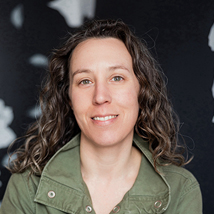 | Stephanie GyldenvandStephanie Gyldenvand, MPA, is a Community Health Strategist with the Winnebago County Health Department where she works to engage community to advance health and racial equity. Over the past six years in public health, Stephanie has focused on system-level changes related to substance use and recovery, belonging, and social connection. Stephanie's professional background includes grassroots community organizing alongside people with lived experience. Stephanie enjoys cooking (but doesn't follow recipes), camping, and exploring hiking trails with, Hudson the golden retriever. |
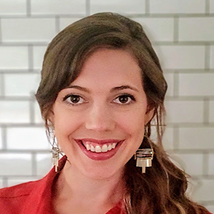 | Maria MorgenMaria Morgen is a Master of Public Health prospective May 2022 graduate at the University of Wisconsin School of Medicine and Public Health. She collaborated on the development of a health messaging module for the New to Public Health Residency Program through an independent study during the Master of Public Health program. With a background in education and public health, Maria is passionate about developing cross-industry connections through effective communication strategies. Maria graduated from the University of Minnesota-Twin Cities with a Bachelor of Science in Health &Wellness and a Public Health Minor. She then entered Teach for America where she became an elementary educator in San Antonio, Texas. Following her service with Teach for America, she continued with the school district as an Instructional Facilitator and guided elementary educators. Currently, she works for the University of Wisconsin-Madison School of Human Ecology. Maria aims to equip community leaders with the tools necessary to support prevention & intervention efforts and promote health & wellness across communities. |
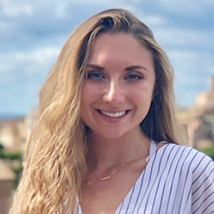 | Kylie DonovanKylie Donovan is a Master of Public Health prospective May 2022 graduate at the University of Wisconsin School of Medicine and Public Health. Through an independent study during her time in the Master of Public Health program, Kylie collaborated on the development of a health messaging module for the Communication session of the program. She is passionate about improving public health outcomes through effective communication and making science digestible for the public. Kylie graduated with a Bachelor of Science in Life Sciences Communication and Spanish in 2020 and continued on to graduate school before entering the workforce. She currently works for the Wisconsin Partnership Program within the University of Wisconsin School of Medicine and Public Health as a science writer. Kylie aims to educate, encourage, and empower communities through access and understanding of public health information to reduce health disparities and inequities. |
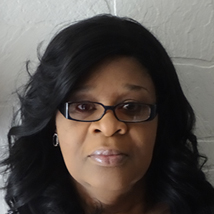 | Dr. Carol Martin BrownDr. Carol Martin Brown PhD RN has been registered nurse for over 25 years and an educator in various settings over the past 15 years, namely, in the community, academia, vocational education, and health care facilities. At the university level, Dr. Brown worked as an adjunct nursing Associate Professor and clinical faculty.Dr.Brown is the founder Elite Community Foundation (ECF), a community-based organization which focuses on reducing poverty, illnesses, and illiteracy, both locally and globally. ECF facilitates access to diverse resources (information, education, training) for the betterment of individuals, families, and communities. Dr. Brown developed ECF’s Pandemic Safety Training and ECF’s Wellness and Safety Series to provide transformative trainings to individuals and vulnerable populations. She received a Mayoral Service Recognition in 2019 and 2020 for her volunteer service. In 2021, Dr. Brown’s presented research proposals focusing on vulnerable populations, infectious disease, and online education in Canada, Wisconsin, and Sweden’s nursing informatics, public health, and nursing philosophy conferences. |
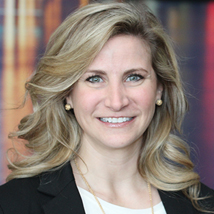 | Tricia (Rose) LandremanTricia Landreman is a Regional Senior Account Executive for Audacy, formerly Entercom and CBS Radio. Audacy is second largest radio company in the United States owning 235 radio stations across 48 markets. In addition, Audacy is one of the largest digital footprints in the county. Tricia’s main role is a marketing solutions provider for nonprofits, government agencies, as well as local and national brands. She thoroughly researches clients’ needs, then develops and executes integrated marketing campaigns, using multi-channel tactics such as Radio, Streaming Audio, Digital (SEM, SEO, Targeted Display, Social Media, Email, Live Chat), and Promotional Events. Using analytics, she maintains and optimizes campaigns to help clients get the best return. Her successful campaigns have been shared throughout the country as case studies. |
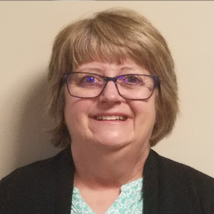 | Cindy Vander Weele, RN, BSNSheboygan County Immunization Co-Chairman. Sheboygan County Public Health Nurse Cindy has been the co-chairman of the Sheboygan County Immunization Coalition for 10 years. Her involvement has been in developing a strong coalition, organizing local educational presentations for the public as well as for health care providers. Her work includes collaborating with other Wisconsin coalitions to recruit national and state expert speakers. In addition, to her leadership role, she has been a Public Health Nurse providing vaccines and evidence-based interventions to individuals and families to increase vaccinate rates for adults and children in her local community. Cindy values making connections with local health care providers and others in the community to work together on developing strategies to eliminate barriers to receiving vaccines. |
Acknowledgements
- Susan Zahner
PLANNING COMMITTEE MEMBERS
| Hannah Hayes, MPH, RN University of Wisconsin-Madison, School of Nursing | Julianna Manske, MSN, RN, OCN University of Wisconsin-Madison, School of Nursing | Susan Zahner, DrPH, RN, FAAN University of Wisconsin-Madison, School of Nursing |
| Deborah Heim, PhD, MS, MN, BSN Public Health Nurse Consultant (PHNC) Wisconsin Division of Public Health Office of Policy and Practice Alignment (OPPA) for the SE region | Marta McMillion, MPH, MS, CHES Association of State and Territorial Health Officials (ASTHO) | |
| Ellen Henry, BS, CHESN City of Franklin Health Department | Ajay Sethi, PhD, MHS UW-Madison School of Medicine and Public Health |
CONTENT REVIEWERS
| Angela Acker University of Wisconsin-Madison, Populations Health Institute | Michael Jaeb University of Wisconsin-Madison, School of Public Health |
| Paula Bizot University of Wisconsin-Madison, School of Nursing | Abra Vigna University of Wisconsin-Madison, Populations Health Institute |
POLICY ON DISCLOSURE
It is the policy of the University of Wisconsin–Madison Interprofessional Continuing Education Partnership (ICEP) to identify, mitigate and disclose all relevant financial relationships with ineligible companies* held by the speakers/presenters, authors, planners, and other persons who may influence content of this accredited continuing education (CE). In addition, speakers, presenters and authors must disclose any planned discussion of unlabeled/unapproved uses of drugs or devices during their presentation.
For this accredited continuing education activity all relevant financial relationships have been mitigated and detailed disclosures are listed below.
*Ineligible companies are those whose primary business is producing, marketing, selling, re-selling, or distributing healthcare products used by or on, patients.
The ACCME does not consider providers of clinical services directly to patients to be ineligible companies.
The University of Wisconsin provides equal opportunities in employment and programming, including Title IX requirements. The University of Wisconsin fully complies with the legal requirements of the ADA and the rules and regulations thereof. If any participant in this educational activity is in need of accommodations, please contact [email protected].
Cohort-3 Disclosures
Name | Role | Financial Relationship Disclosures | Discussion of Unlabeled/Unapproved uses of drugs/devices in presentation? |
| Raia Stamm | Speaker/Author | No relevant relationships with ineligible companies to disclose | No |
Accreditation Statement
 | In support of improving patient care, the University of Wisconsin–Madison ICEP is jointly accredited by the Accreditation Council for Continuing Medical Education (ACCME), the Accreditation Council for Pharmacy Education (ACPE), and the American Nurses Credentialing Center (ANCC) to provide continuing education for the healthcare team. |
Credit Designation Statements
American Nurses Credentialing Center (ANCC)
The University of Wisconsin–Madison ICEP designates this Internet Enduring Material activity for a maximum of 6.00 ANCC contact hours.
Continuing Education Units (CEUs)
The University of Wisconsin–Madison ICEP, as a member of the University Professional & Continuing Education Association (UPCEA), authorizes this program for .600 CEUs or 6.00 hours
Certified Health Education Specialists (CHES) and/or Master Certified Health Education Specialists (MCHES)
Sponsored by University of Wisconsin–Madison ICEP, a designated provider of continuing education contact hours (CECH) in health education by the National Commission for Health Education Credentialing, Inc. This program is designated for Certified Health Education Specialists (CHES) and/or Master Certified Health Education Specialists (MCHES) to receive up to 6.00 total Category I continuing education contact hours. Maximum advanced-level CECH available are .50. Continuing Competency credits available are 6.00
Total contact hours: 6.00
Entry-level contact hours: 5.50
Advanced-level contact hours: .50
Available Credit
- 6.00 ANCC Contact Hours
- 6.00 CECH Approved Credits
- 6.00 Entry-level Continuing Competency credits
- 0.50 Advanced-level credits
- 5.50 Entry-level credits
- 6.00 University of Wisconsin–Madison Continuing Education Hours

 Facebook
Facebook X
X LinkedIn
LinkedIn Forward
Forward